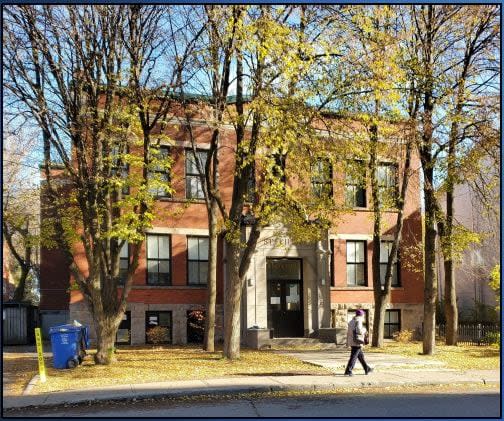Ontario gives cities more time to protect heritage buildings, but there's a catch
A new bill has extended the deadline for Ontario municipalities to officially designate buildings on their heritage registers by two years, while closing a loophole that would have further relieved the time crunch.
The provincial government tightened the rules surrounding the lists in 2023, telling municipalities they had until the end of this year to either designate listed properties, or remove them for at least five years.
This put the City of Ottawa in a frantic race to assess more than 4,600 properties.
With no hope of getting through all of them in that time, the city made a priority list of 700 properties. But Lesley Collins, program manager for heritage planning, said even that was far from feasible.
"There was no way we were going to get through maybe a tenth of them by the end of the year," Collins said, noting the city's strategy to bring forward clusters of similar properties to council at once.
That includes a number of properties along Rideau Street, which got the thumbs up from the city's built heritage committee on Tuesday — despite concerns from property owners that things were moving too fast.
The committee also encouraged staff to move forward with the process to assess eight new heritage conservation districts.

Loophole officially closed
Beyond extending the timeline for "reviewing legacy listed properties" from Jan. 1, 2025 to Jan. 1, 2027, Bill 200 — which was introduced and received royal assent within a month — clarified certain rules that Ottawa had been taking advantage of.
Council has voluntarily removed more than 500 properties from the register in order to avoid the five-year wait to relist properties that expire. The new bill suggests the city can't reassess those properties for at least half a decade.
"It gets rid of the loophole," explained David Flemming, chair of the advocacy committee with volunteer-run Heritage Ottawa. "They realized that the municipality has done all these things and they go, 'Whoops, we're not going to let you get away with that.'"

To Flemming, it's a sign that the province fundamentally misjudged the purpose of the list.
"It doesn't mean it's going to be a tripwire to registration," he said, explaining that it allowed heritage staff to hold off on a process to designate until the property owner wanted to demolish it.
Now, he argues, staff are forced to move forward at a record pace.
Collins said the city is still assessing the impacts of the bill, but added that it's "good news" overall.
Councillors will get a full rundown on how the city will respond to the change before the next built heritage meeting in July, but Collins gave a sneak preview: "We will probably try to keep our foot on the gas as much as we can."


